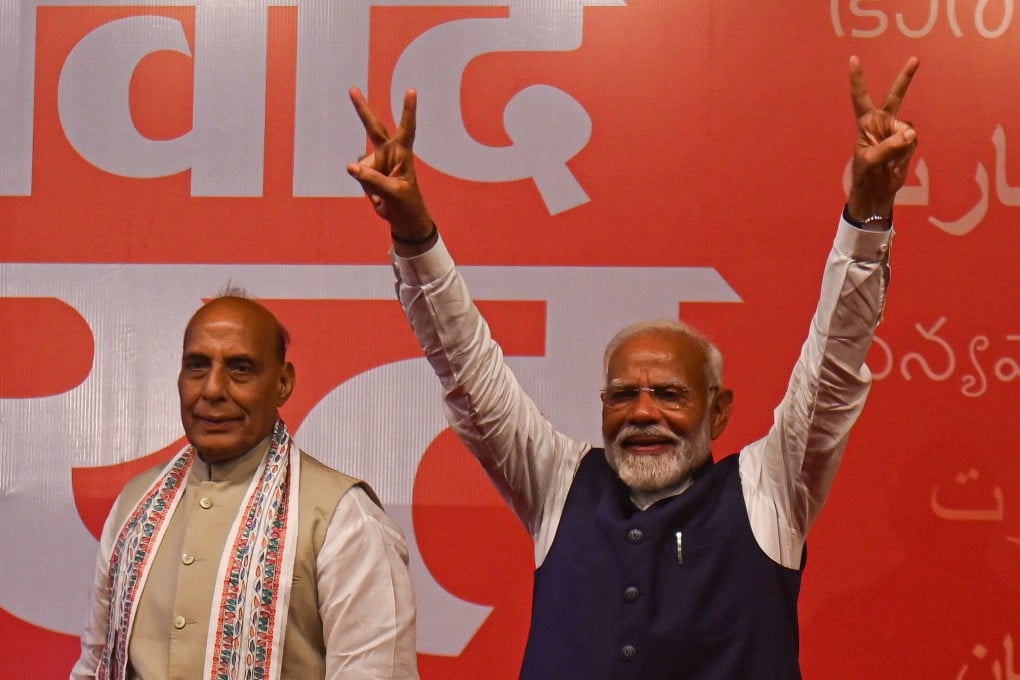Advertisement
Where are India’s ties with the US and China headed in a third Narendra Modi term?
- Poorer-than-expected performance by prime minister’s ruling party unlikely to alter joint initiatives between Washington and New Delhi, analysts say
- But unresolved border dispute and concerns over China’s risen profile define ‘more complicated’ Sino-Indian relationship
Reading Time:5 minutes
Why you can trust SCMP
15

Khushboo Razdanin Washington
India’s general election results on Tuesday delivered an unexpected twist in the ongoing tale of the country’s popular yet polarising Hindu nationalist leader, Narendra Modi, unveiling a reality quite distant from a widely anticipated landslide victory.
Advertisement
With his Bharatiya Janata Party-led coalition projected to narrowly secure the required majority to form a government, Modi, the twice-elected leader of the world’s largest democracy, appears poised to return as the country’s top elected official.
Questions swirl as to the implications of the poorer-than-expected performance, with many asking what a weaker Modi means for India’s evolving relationship with the US and for its uneasiness with China, whom America sees as posing a “pacing challenge”.
Even if Modi’s actual clout is not necessarily diminished, the outcome represented “a setback to the massive expectations tied to his indomitable popularity on the ground and abroad”, according to Farwa Aamer of Asia Society, a New York think tank.
“India will continue to be seen as an important global player regardless, but we may just see a lot more focus on domestic issues and challenges, given the election results, at least for the initial months of the new government,” Aamer added.
India’s Modi claims Indian elections victory, but his party needs coalition to retain power

Advertisement